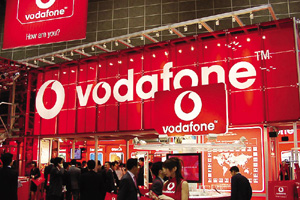Seasonal Reflections
Back to Contents of Issue: October 2004
|
by Arjen van Blokland |
|
 At the close of summer, many Japanese returned to their hometowns to celebrate the O-bon festival, during which Buddhists believe that their ancestors' spirits return to their homes to be reunited with the living. Tokyo's relative inactivity afforded us a chance to review recent developments in Japan's mobile phone markets. At the close of summer, many Japanese returned to their hometowns to celebrate the O-bon festival, during which Buddhists believe that their ancestors' spirits return to their homes to be reunited with the living. Tokyo's relative inactivity afforded us a chance to review recent developments in Japan's mobile phone markets.We start with KDD, which has been doing well. It has gained market share and introduced new 3G-services with flat-rate plans for mobile Internet access. DoCoMo followed, but Vodafone has yet to announce flat-fee services. These flat rates are only for mobile Internet services -- phone browsing, downloading and email. In Japan, flat-rate data services are only offered on the slower PHS network. Europe launched 3G services with flat rates for data cards. In the Netherlands, KPN offers the first GB for just 75 euro -- a very attractive rate, and underpricing Vodafone's offer. We are concerned about the situation at Vodafone Japan. President Darryl Green resigned quite suddenly this past June. Though personal reasons were cited as the root cause, we believe discord between Green and Vodafone headquarters forced him out. Since the company became a full Vodafone Group subsidiary, Green's position must have gradually weakened. The first signs of this were visible in April, when British headquarters sent new COO David Jones to Japan -- usually an indicator of slipping confidence -- prompting us to wonder if Green had gone too'Japanese.' More revealing is a true assessment of Vodafone's performance in Japan over the past year -- and it is hardly glowing. Vodafone has lost significant market share to KDDI, and in July, it even registered a net loss in subscribers of 3,100, while DoCoMo and KDDI gained more than 200,000 each. Vodafone will also reduce its headcount by hundreds of employees, something that is still a delicate matter here in Japan. While DoCoMo and KDDI will use the Felica platform for mobile payments, Vodafone has not yet -- as of this writing -- made an official announcement. Japan might be a playpen for new technologies in the Vodafone Group, but product strategy is being centralized in Europe. This explains why Vodafone has been reluctant to push its Vodafone Global Standard (VGS) 3G-service in the Japanese market. The number of new handsets released was also smaller than we were expecting. We love to use the VGS handsets though, with their international voice and data-roaming capabilities. It will be challenging for Vodafone to pick up speed on its rivals. We wouldn't have been surprised if Vodafone's new CEO Brian Clark was spied at Zojoji Temple near his office during O-bon -- not to meet his ancestors, but to pray for wisdom and prosperity. |
|
Note: The function "email this page" is currently not supported for this page.





